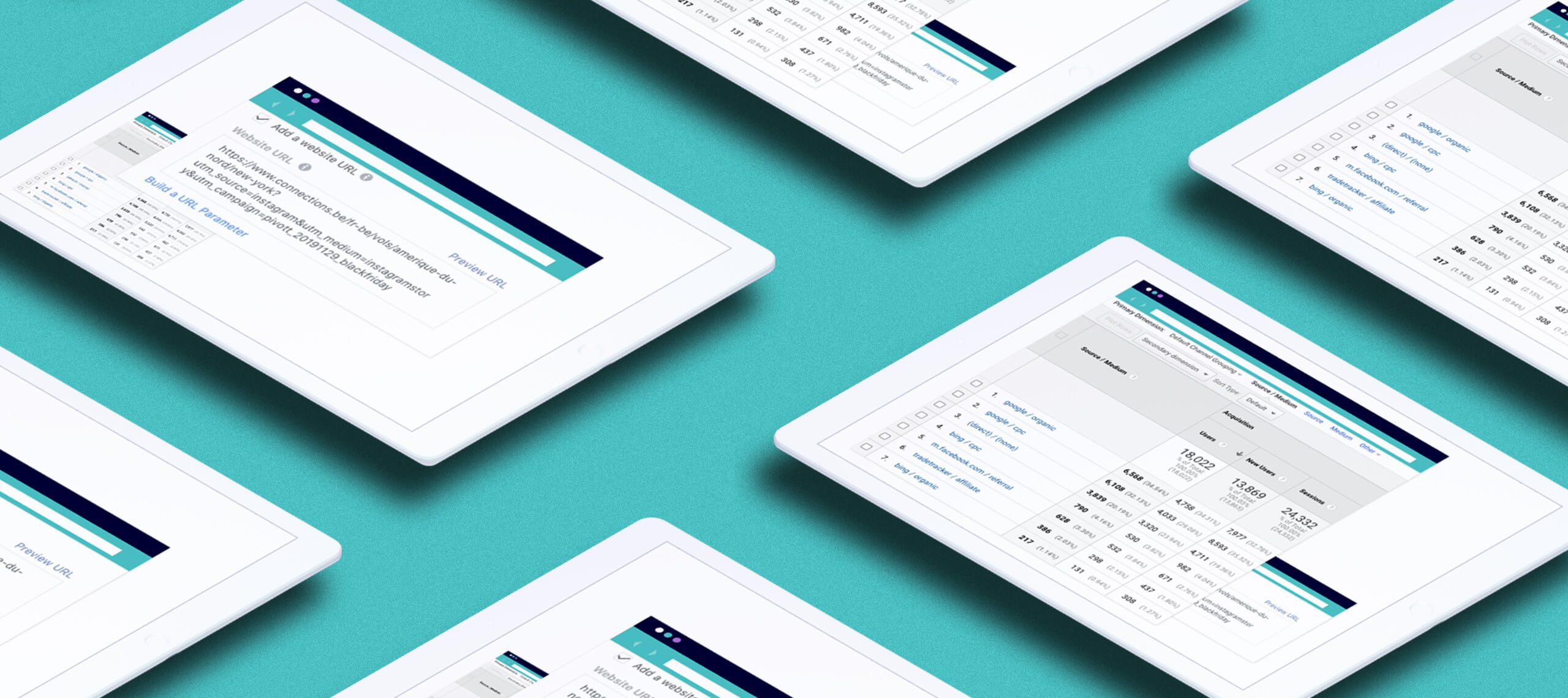Facebook wishes you
a cookie free 2022


ABOUT COOKIES AND FACEBOOK
For those who already know what cookies and Facebook pixels are, you can just skip to the next part. If you don’t, just stay tuned so we can give a quick update.
Cookies are small pieces of text used to store information on web browsers. Cookies are used to store and receive identifiers and other information on computers, phones and other devices. Cookies are being saved in your browser also by surfing on the Facebook domain or app.
Facebook uses both first and third-party cookies with your Facebook pixel. The difference between first and third-party cookies is who owns the cookie.
First-party cookies are owned by the website a person is currently viewing, while third-party cookies belong to a website other than the one a person is currently viewing.
Compared to third-party cookies, first-party cookies are more widely accepted by browsers and stored for longer periods of time. The Facebook Pixel is a few lines of code from Facebook that you copy into the header section of your website. This code allows the pixel to receive information about the actions taken on your site via a browser to make your Facebook ads more relevant to your audience. Yet both cookies and Facebook pixel will disappear in the nearby future.
RIP COOKIE 2022
Due to the new GDPR and privacy regulations, the industry is moving away from cookie-based server tracking. And for those who think they still have enough time to change the way they are gathering consumer data, it might already be too late. Most browsers already announced the support of cookies phasing out by 2022. Whether this is a positive or negative development depends on how your company is gathering data today. For businesses, who use cookies for monitoring user behaviour and gathering data on their marketing activities, and who spend a lot of resources turning cookies into customers, the death of the cookie is going to be a huge headache. Luckily Pivott can offer you both consultancy as technical support on implementing the right scripts to be ready for a futureproof cookieless environment.
FACEBOOK'S CONVERSION API
Now what about Facebook and a cookieless 2022?
Facebook is also coming up with an alternative to capture served based data instead of browser data. It’s called Facebook’s conversion API.
Conversion API, also known as the server-side API, offers to share events occurring both online and offline from your server directly to Facebook’s server. This helps measure ad performance across multiple channels. In the image below we try to illustrate how Facebook is moving from browser data to server data.
What’s the difference with the Facebook pixel?
The Conversion API does not show a user’s whole journey like the pixel, but it shows the end result. It also updates ad tracking by helping bypass issues such as long load times, poor network connections and ad blockers. The agency role that Pivott can play to support your company in integrating the Conversion API is both as facilitator and integrator.
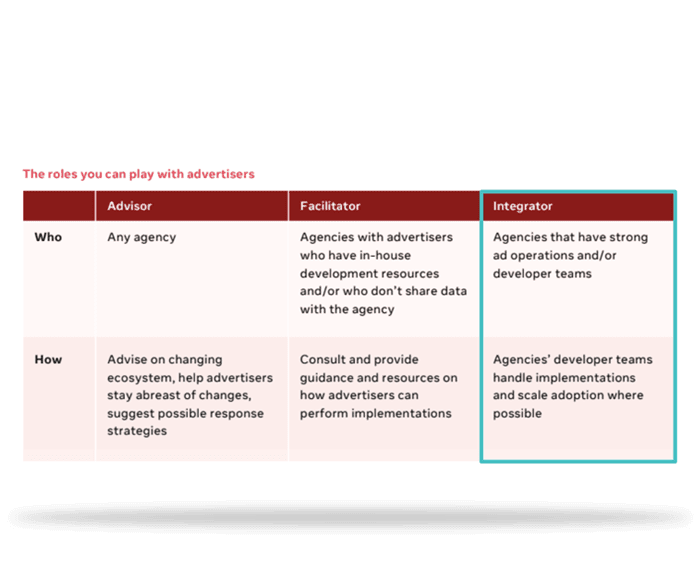

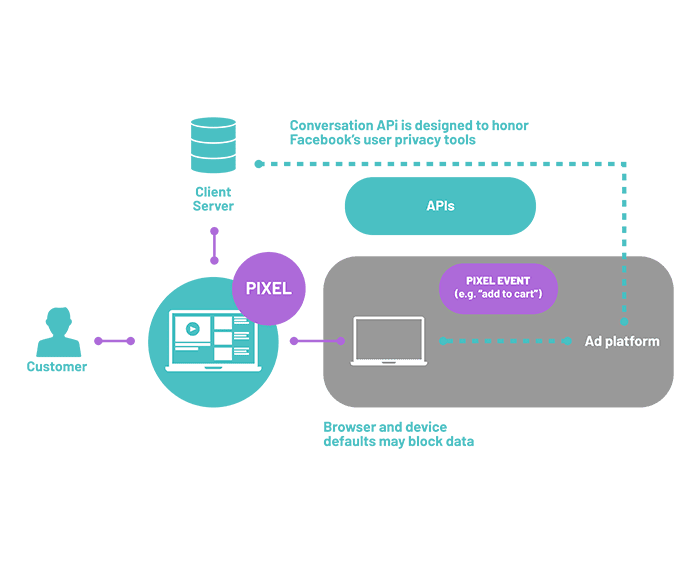

ABOUT THE IMPLEMENTATION
For now Facebook has foreseen in Events Manager a way to see both server-side and browser data for advertisers who have already implemented the conversion API and are still working with the Facebook Pixel. You can easily see what data Facebook is actually pulling in or directly from your webserver or still via cookies. When shifting from browser based to server based, you will notice duplicates of your events. Facebook has a way to deduplicate the same events and prioritizes the ones that are being tracked by the server. In that way, you won’t lose any data during the transfer period.
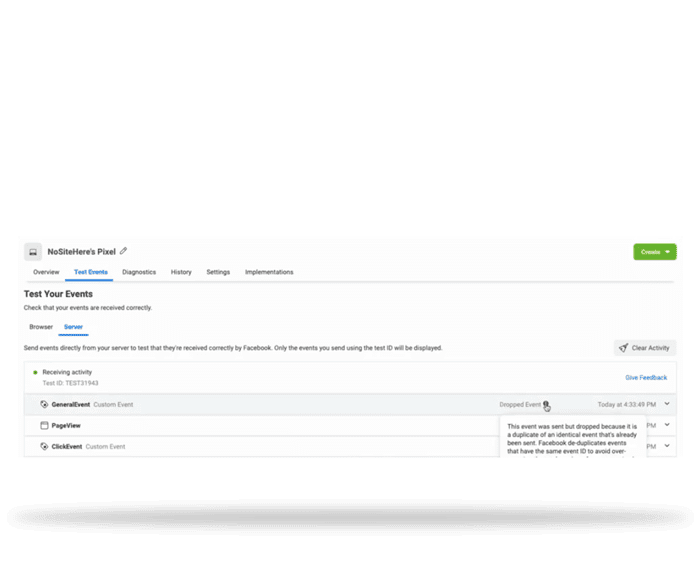

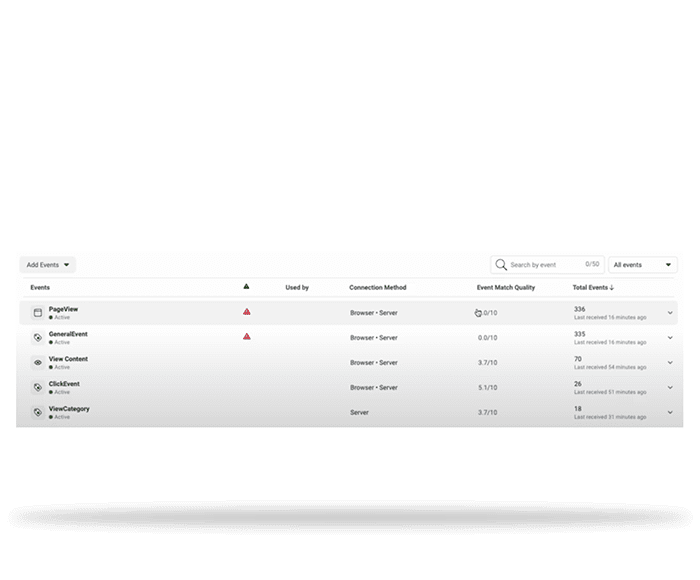

GOOGLE TAG MANAGER UPDATE
Update: Good news! The Facebook Conversions API via Google Tag Manager is now live, and freely available.
As a reminder, Conversions API is an important Facebook Business Tool for establishing more reliable data connections using your first-party data to help enhance targeting, optimization and measurement of your Facebook ad campaigns, and working with partners should be able to significantly reduce the effort needed to implement its use.
Now, with your Google Tag Manager server-side tagging account, you can set up Conversions API and configure data collection on the website only once using Google Analytics 4 (GA4) Web Tag and your own server hosted on Google Cloud Platform.
Build something 100 people
love, not something
1 million people kind of like.
Brian Chesky
How can Pivott help you?
Contact us
Newsletter signup form
Het formulier is succesvol ingediend!
Er is iets fout gegaan, probeer het later nog eens of stuur een e-mail naar info@pivott.be

